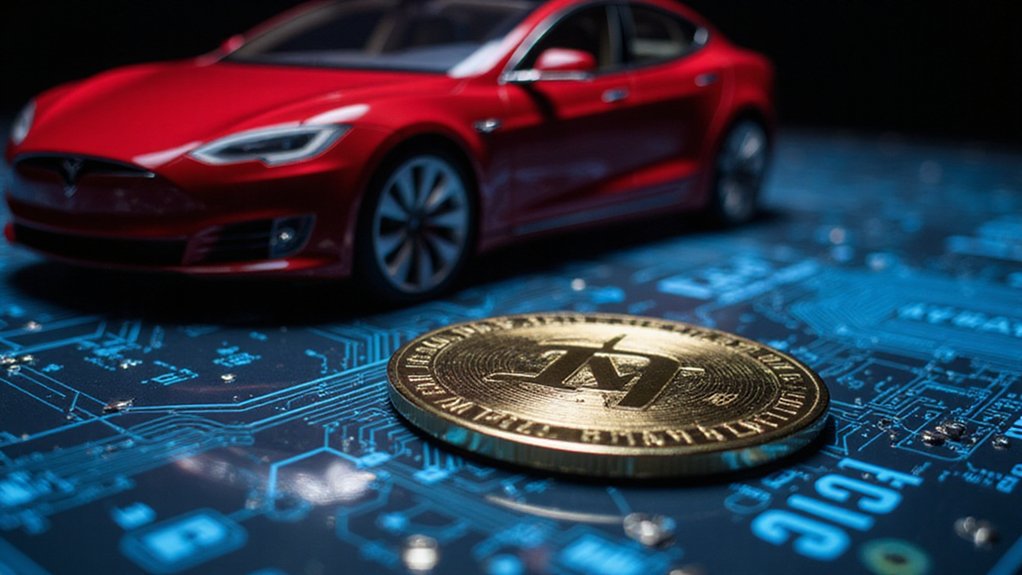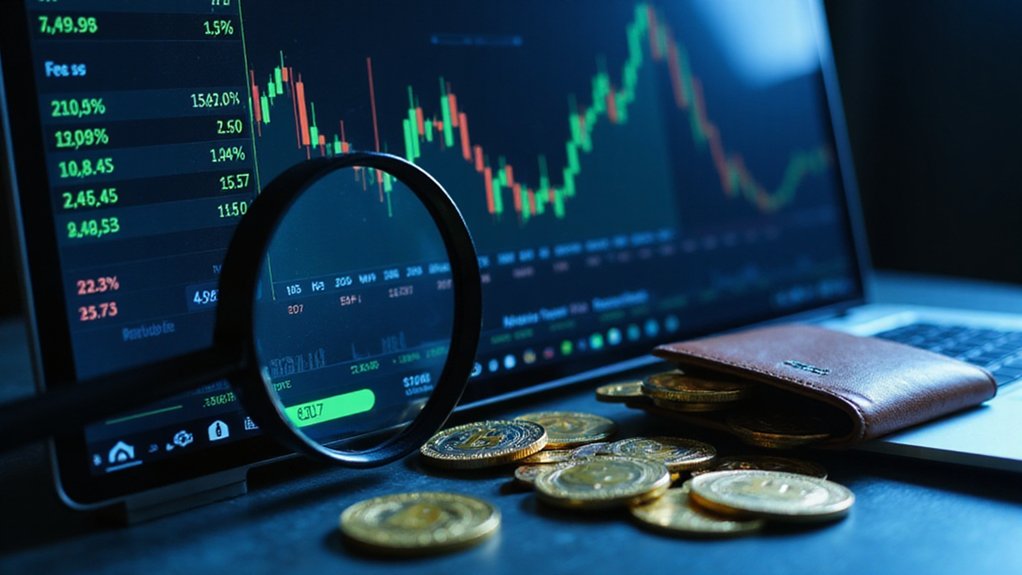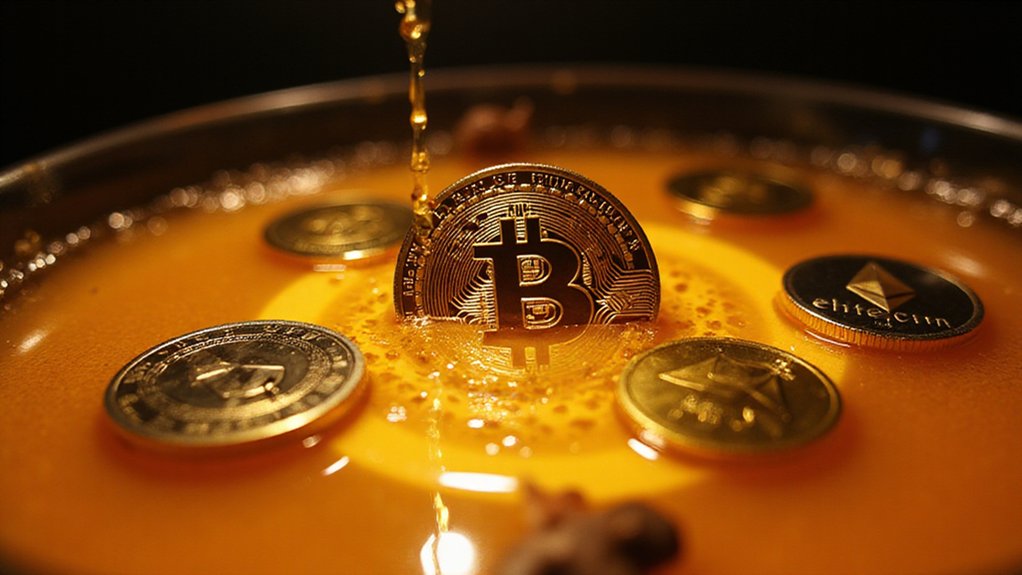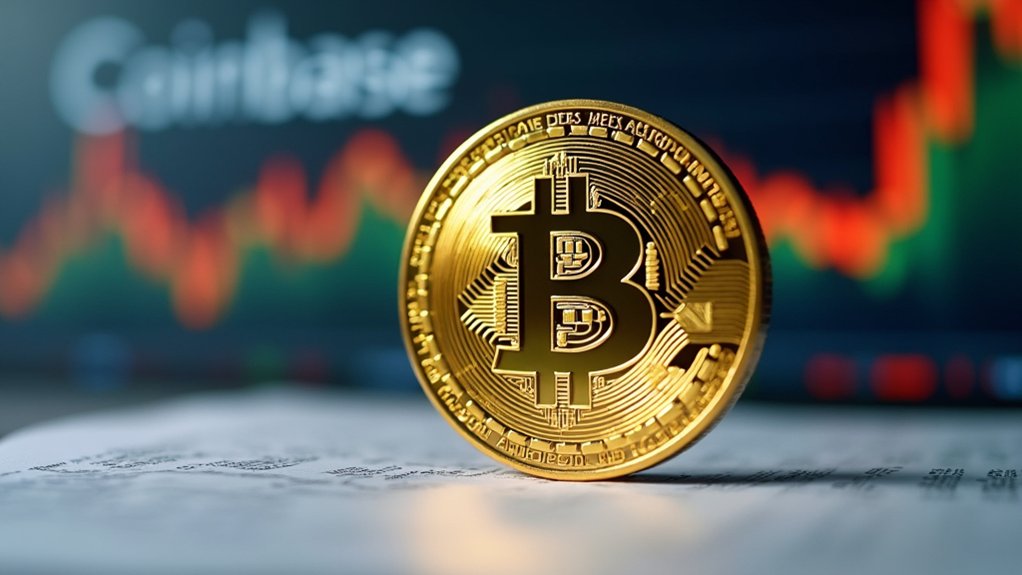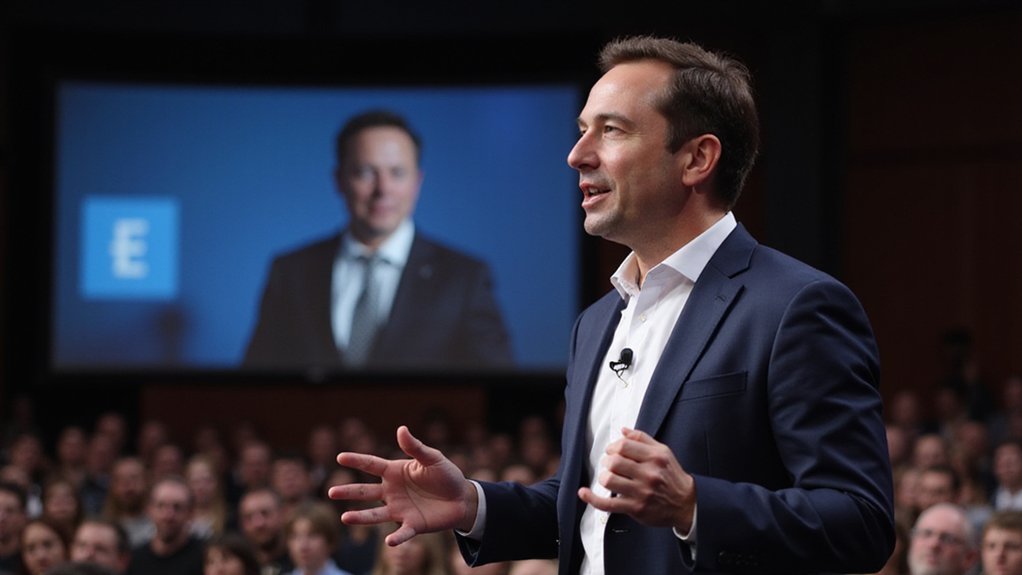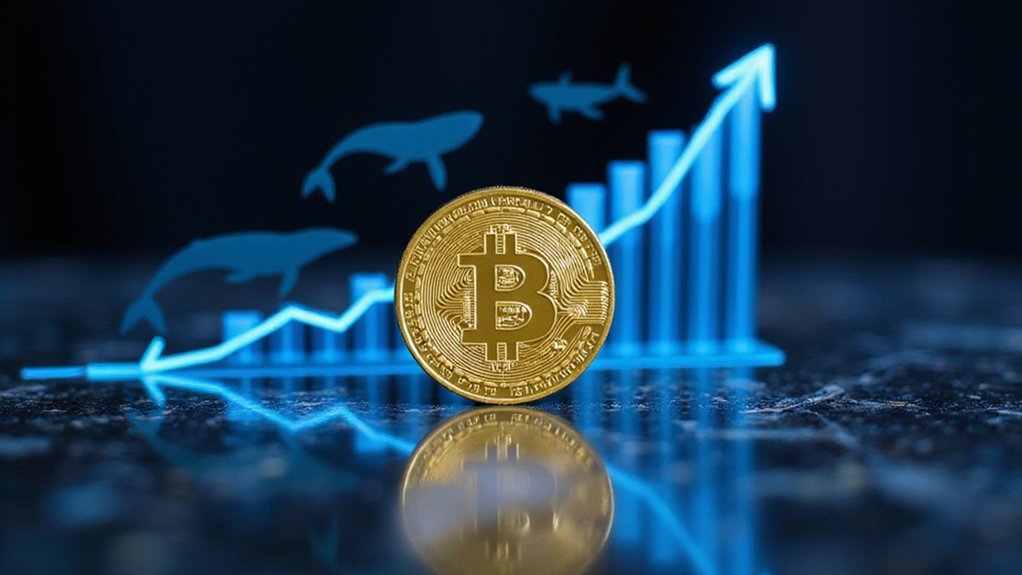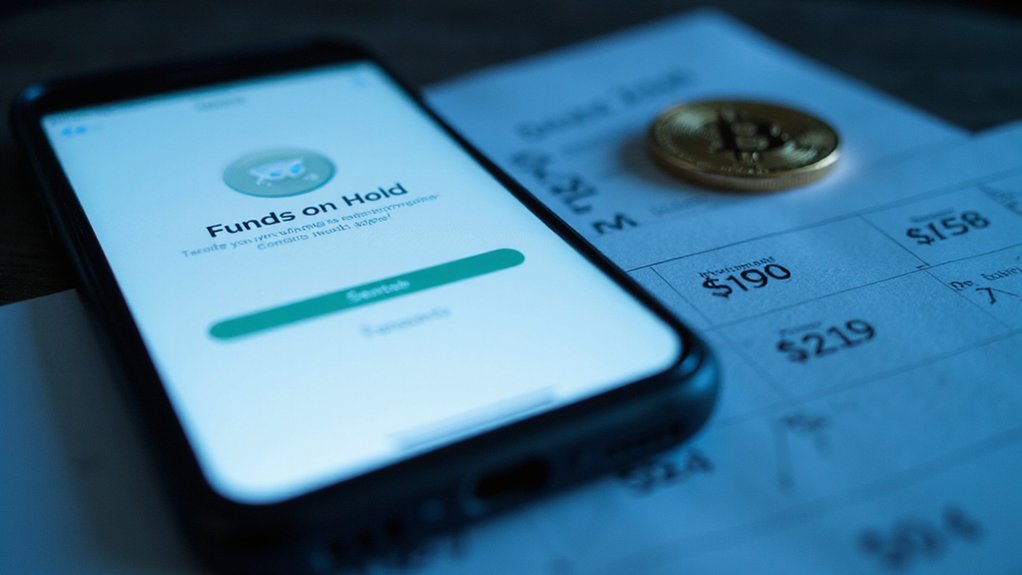Tesla Tokens are blockchain-based digital assets that represent fractional ownership interests in Tesla stock without requiring full share purchases. These hybrid instruments maintain value correlation with Tesla’s actual stock performance while operating via smart contracts on cryptocurrency networks. They offer investors reduced transaction costs, accelerated settlements, and fractional ownership possibilities—all while mirroring Tesla’s financial vicissitudes. Unlike TeslaCoin (TES), these tokens are typically backed by actual Tesla shares held in custody, though they inhabit a curious regulatory grey zone between securities and crypto assets.

What exactly transpires when the relentless innovation of electric vehicle manufacturing collides with the blockchain revolution?
The answer materializes in the form of Tesla Tokens, digital assets that represent ownership interests in Tesla, the electric vehicle juggernaut, without necessitating the purchase of full shares.
These blockchain-based instruments operate via smart contracts, offering investors a pathway to Tesla exposure with reduced capital requirements—a particularly compelling proposition given the company’s historically lofty share price.
Tesla Tokens leverage blockchain technology to facilitate secure, transparent transactions with efficiency that traditional stock exchanges might view with envy.
Operating on various crypto networks, these tokens maintain value correlation with Tesla’s actual stock performance, effectively mirroring the financial vicissitudes of Elon Musk’s enterprise while introducing notable advantages: fractional ownership possibilities, reduced transaction costs, and accelerated settlement times.
(One might reasonably wonder why traditional markets haven’t universally adopted such efficiencies, but that’s a question for another discourse.)
The economic architecture of these tokens generally includes dividend rights and the benefits of stock splits, as they’re typically backed by actual Tesla shares held in custody by asset management entities.
This arrangement creates a curious financial hybrid—a crypto asset with traditional equity characteristics, traded on platforms like Binance rather than the NYSE, and typically settled in cryptocurrencies rather than fiat.
It’s important to note that despite similar naming, these tokens are distinct from TeslaCoin (TES), a cryptocurrency launched in 2014 that has no market value and is not affiliated with Elon Musk or Tesla, Inc.
For investors priced out of direct Tesla ownership, these tokens present an accessible alternative, though not without considerations. Token transactions execute considerably faster with trades completed within minutes via blockchain technology compared to traditional stock settlements. Investors should note that the displayed pricing data for these tokens is for illustration only and may differ from actual cryptocurrency prices in the market.
They inhabit a regulatory grey zone¹ between securities and crypto assets, potentially exposing holders to unique compliance challenges.
Furthermore, they carry dual volatility exposure—to both crypto markets and Tesla’s own notorious price fluctuations—creating a peculiar risk profile that demands sophisticated risk management.
¹A domain where regulators frequently arrive late to the innovation party, armed with frameworks designed for previous financial paradigms.
Frequently Asked Questions
How Do I Purchase Tesla Tokens?
To purchase Tesla tokens, one must first select a compatible cryptocurrency exchange listing the specific variant (TeslaCoin, Tesla Token, or Tessla Coin).
After establishing a crypto wallet—Trust Wallet being particularly suitable for Ethereum-based tokens—investors should acquire the requisite base currency (typically ETH or USDT).
The actual purchase involves either spot trading on centralized platforms like Binance (following KYC verification) or connecting wallets to decentralized exchanges and executing swaps—all while remaining vigilantly aware of cryptocurrency’s inherent volatility.
What Risks Are Associated With Tesla Token Investments?
Tesla Token investments carry substantial risks including extreme price volatility, regulatory uncertainty, and vulnerability to market manipulation schemes like pump-and-dumps.
Investors face cybersecurity threats, limited liquidity, and potential legal restrictions across jurisdictions.
The token’s speculative nature—untethered from intrinsic value—renders it susceptible to sentiment-driven price swings.
Additionally, compliance burdens (AML/KYC requirements) may increase transaction costs, while inadequate oversight leaves investors exposed to fraudulent activities with minimal recourse options should losses occur.
Can Tesla Tokens Be Transferred Between Different Wallets?
Yes, Tesla Tokens can be transferred between different wallets, provided they’re compatible with the token’s blockchain standard.
Transfers require the sender to have sufficient tokens and transaction fees (“gas”), while recipient wallets must support the specific blockchain network.
The process involves entering the destination wallet address and confirming the transaction, which typically takes minutes depending on network congestion.
Users should exercise caution, as cross-chain transfers require bridging solutions, and incorrect wallet addresses can result in irreversible token loss.
What Determines Tesla Token Price Fluctuations?
Tesla Token price fluctuations are determined by a complex interplay of factors across multiple domains.
Market conditions and cryptocurrency trends create the baseline volatility, while regulatory developments (particularly those affecting blockchain assets) can trigger dramatic swings.
Technological advancements and security updates often boost prices, whereas negative media coverage can precipitate rapid declines.
Celebrity endorsements—particularly from tech luminaries—and social media sentiment frequently catalyze pronounced movements that appear disconnected from fundamental value propositions.
Are Tesla Tokens Regulated by Financial Authorities?
Tesla tokens—like most cryptocurrency assets—exist in a regulatory gray zone.
While traditional securities face clear oversight, these blockchain-based instruments often operate beyond conventional financial guardrails.
Regulation varies dramatically by jurisdiction, with some nations implementing stringent controls while others maintain laissez-faire approaches.
Generally, these tokens must comply with anti-money laundering and KYC requirements on exchanges where they’re traded, though the regulatory landscape remains notoriously fluid and fragmented—a fact that keeps compliance officers perpetually sleep-deprived.
